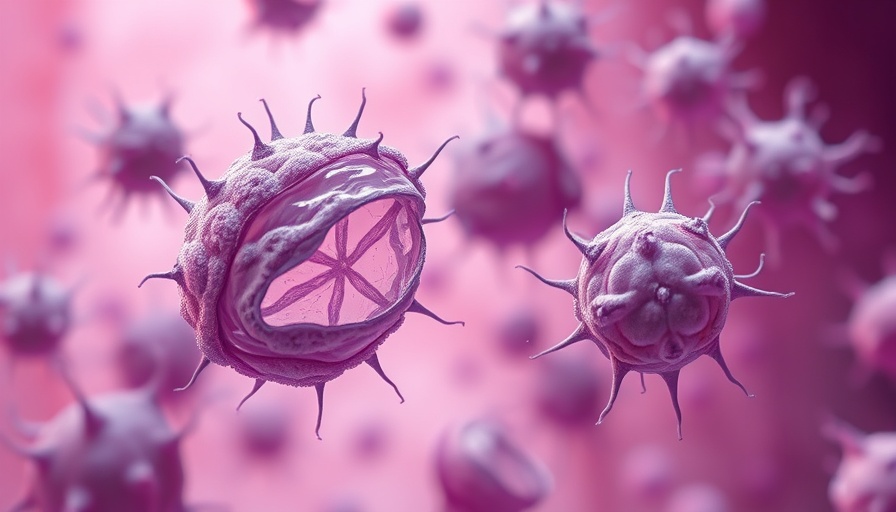
The Alarming Case of Naegleria Fowleri in South Carolina
In a tragic reminder of how rare but deadly threats lurk within our environments, South Carolina has reported a fatal case of a brain-eating amoeba known scientifically as Naegleria fowleri. This organism, commonly found in warm freshwater, has claimed the life of a patient at a children's hospital in Columbia. Although the incidence of such infections is extremely low—typically fewer than 10 reported cases a year in the U.S.—the consequences are dire. This case is a critical signal to enhance vigilance regarding water safety practices.
Understanding Naegleria Fowleri: More than Just a Freshwater Threat
This amoeba predominantly resides in lakes, hot springs, and poorly maintained pools, but it has also been detected in tap water when conditions allow for its growth. Infection occurs when contaminated water enters the body through the nose, often during recreational activities. The U.S. has seen sporadic instances of fatal outcomes attributed to this organism, with a notable case last season in North Carolina.
The Importance of Local Awareness: Where Else Could It Be Present?
With the recent case highlighting a new danger, healthcare workers and wellness advocates in the Charlotte area must be equipped with the latest information concerning Charlotte health news. How widespread might this organism be? It's essential to recognize that warm weather fosters conditions where Naegleria fowleri can flourish. Parents and community members should remain informed about local water safety, especially when visiting natural bodies of water.
Practical Tips for Ensuring Safety Against Waterborne Threats
As summer approaches, recreational water use increases. Here are some practical steps to minimize exposure risks to this dangerous amoeba:
- Avoid Warm Freshwater: Steer clear of warm lakes and hot springs, especially during high temperatures.
- Keep Water Out of Your Nose: Use nose clips or avoid submerging your head.
- Maintain Pools Properly: Ensure that municipal pool facilities are properly chlorinated to prevent amoeba growth.
Future Implications: Staying Informed and Prepared
The emergence of cases like this one raises questions about risks associated with water safety across the country. Is it possible for Naegleria fowleri to proliferate in municipal systems during heat waves or other climate changes? Enhanced public health communication is essential to prevent potential outbreaks, especially in community areas like Charlotte, where warm water conditions are prevalent.
Understanding Public Health Alerts and Community Action
The South Carolina Department of Public Health stresses that although the threat is real, it is rare. However, the proactive measures taken by local agencies are vital in sustaining community safety and well-being. It is essential for Charlotte's residents to stay informed through Charlotte public health alerts and participate in health officials' recommendations for safe water practices.
What This Means for Charlotte: A Call for Vigilance
This unfortunate incident serves as a wake-up call not only for South Carolinians but for all communities near susceptible water sources. Let's engage actively in safeguarding our neighborhoods. Understanding the risks and knowing how to respond is crucial for protecting our loved ones.
Charlotte's families, health advocates, and healthcare professionals must keep abreast of local epidemiological reports and ensure consistent water quality monitoring. Understanding this information can lead to significant health benefits for all community members.
 Add Row
Add Row  Add
Add 




Write A Comment